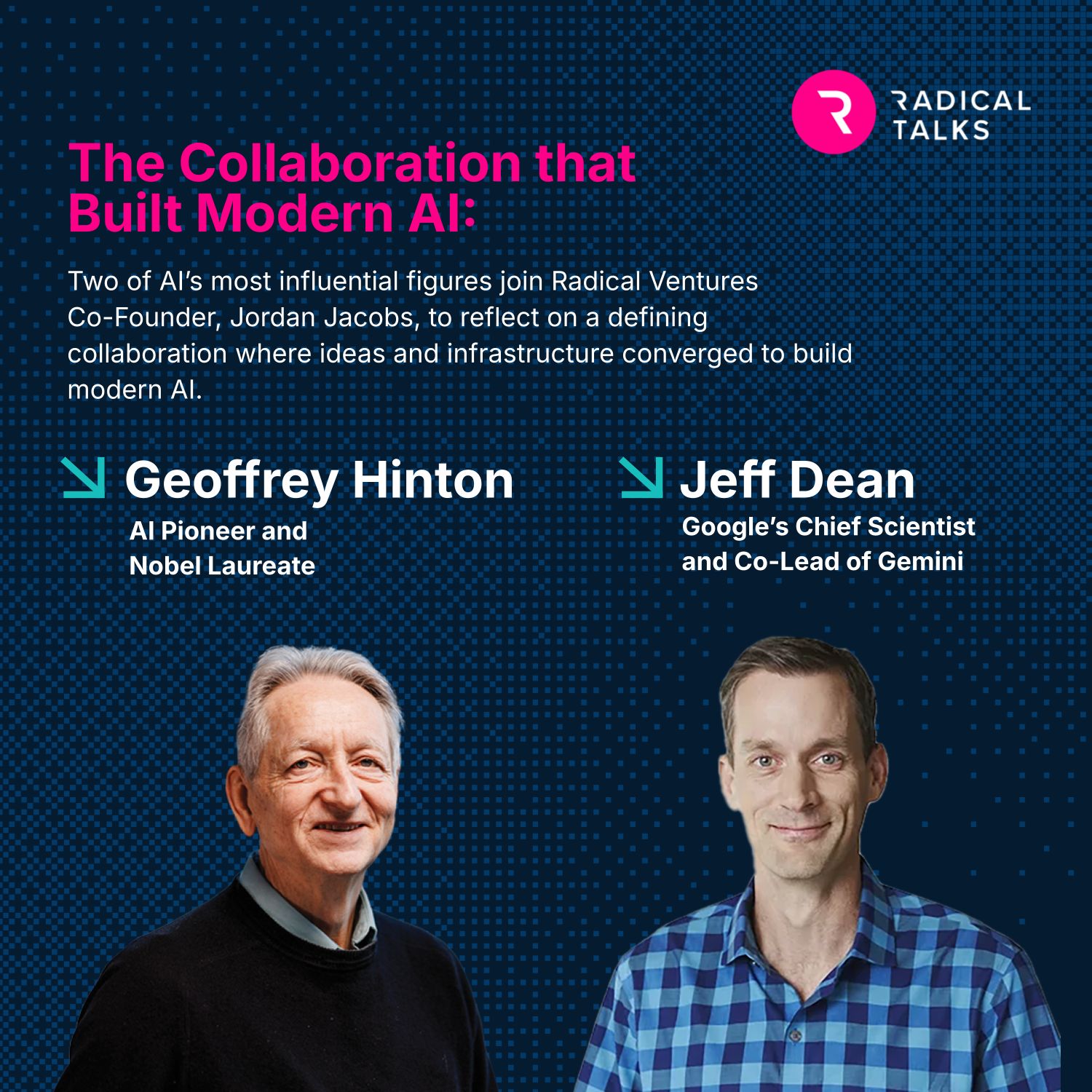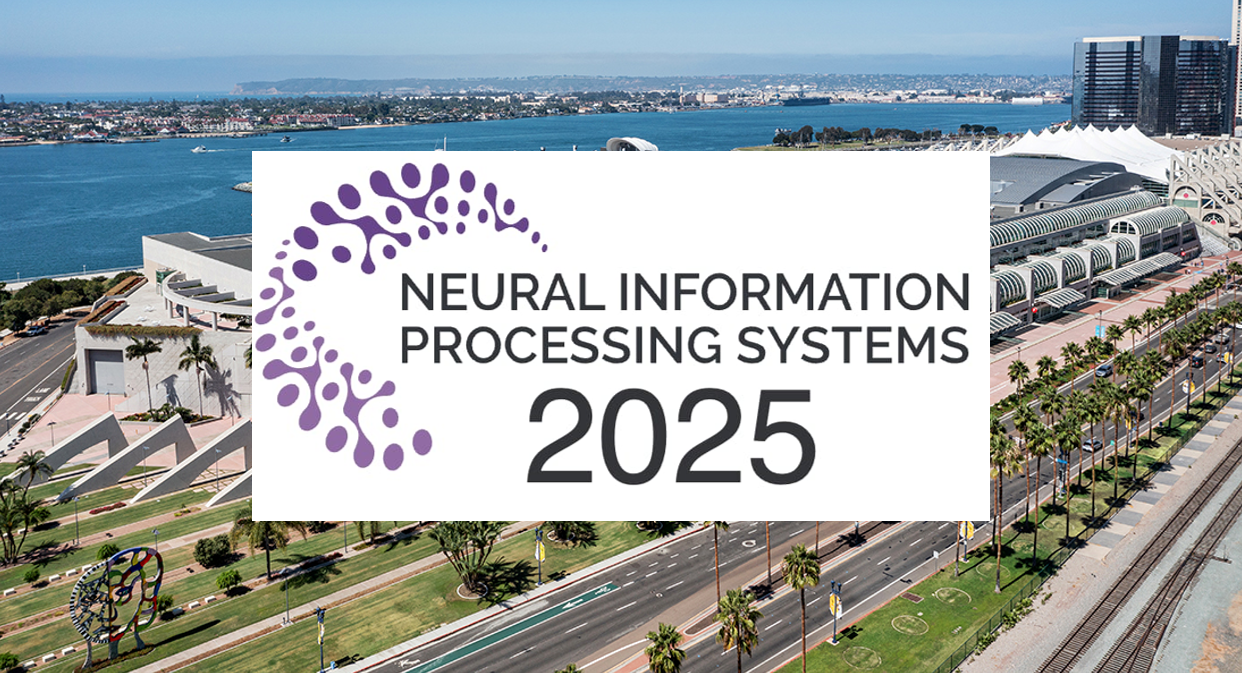Radical Ventures announced our Series A lead investment in OffDeal, an AI-native investment bank transforming M&A services for small businesses. In this feature, Radical Partner Ryan Shannon explores how OffDeal is reimagining everything from deal execution to organizational structure while proving that AI can deliver superior outcomes for clients.
We have long been bullish on the potential for AI to revolutionize the global economy, especially in financial services. There was simply too much waste, too little innovation, and frankly, too much money being made for the sector not to see massive disruption from the breakthrough capabilities we are seeing from foundation models.
One of our first bets underpinned by this assumption was OffDeal. Last fall, we led the seed round in the company as it embarked on a mission to build the world’s first AI-native investment bank for small businesses. The premise was simple: what would Goldman Sachs look like if it were built today, leveraging the full capabilities of modern AI?
In less than a year, OffDeal has gone from a slide deck promise to a thriving investment bank. OffDeal now delivers world-class advisory services nationwide in the U.S. So far this year, they have launched over 30 sell-side transactions, closed multiple deals, and have created life-changing outcomes for small business owners. It was this momentum that led Radical to double down and lead OffDeal’s $12M Series A this summer.
OffDeal has proven its thesis: AI enables broader reach to buyers and sellers, automates tedious investment banking workflows, and importantly, delivers superior outcomes to its clients.
The company is building an AI-native services business from scratch by rethinking key elements:
- Software Stack: Custom, vertically integrated platform fused with AI agents and proprietary data for a unified system of record and rapid feedback loops.
- Org Chart: Traditional pyramid replaced by 2-person deal pods (one senior, one junior), enabling 8-10 parallel M&A processes per pod, juniors on high-value tasks from day one, and higher revenue per employee.
- Culture: AI-first mindset with first-principles workflow design; risk-on ownership and tech-forward collaboration for real-time fixes.
- Compensation Model: Bankers earn meaningful economics per closed deal, exceeding incumbent MD pay and aligning incentives with outcomes, not hours.
We are excited to partner again with OffDeal as they pioneer this model, disrupting financial services with top-tier advisory for small businesses.
If you own a small business and seek the best SMB-focused investment bank, please reach out to OffDeal.
Learn more about OffDeal on their website. Read Ryan Shannon’s full article on OffDeal’s Series A on his Substack.
Join Radical’s 5th Annual AI Founders Masterclass
Are you an AI researcher or technical entrepreneur ready to build a breakthrough AI company? Our exclusive 4-week AI Founders Masterclass connects you with the insights, network, and resources needed to build successful AI companies. Learn directly from successful AI entrepreneurs and industry leaders who have helped turn cutting-edge research into billion-dollar companies, and connect with a global community of ambitious AI founders from top institutions like Stanford, MIT, Oxford, Mila and the Vector Institute. Select participants also have the opportunity to receive $250,000 in Google Cloud credits and dedicated GPU clusters.
Spots are limited — apply here for the AI Founders Masterclass and here for the Radical Compute Cluster.
AI News This Week
-
Cohere’s New AI Agent Platform, North, Promises to Keep Enterprise Data Secure (TechCrunch)
Radical portfolio company Cohere launched general availability of North, an AI agent platform designed to address enterprise data security concerns that have slowed AI adoption in regulated industries. Unlike cloud-based solutions, North can be deployed on a customer’s private infrastructure, including on-premise servers, hybrid clouds, or air-gapped environments, ensuring data never leaves the organization’s firewall. North offers agentic capabilities in a chat format, alongside search capabilities powered by Cohere’s Command and Compass systems, enabling users to summarize documents, conduct market research, create assets like tables and presentations with full citation tracking and instruct broader actions. Early customers include RBC, Dell, LG, and Ensemble Health Partners.
-
Five Ways that AI is Learning to Improve Itself (MIT Technology Review)
AI systems are increasingly contributing to their own development through five key mechanisms: (1) LLMs are enhancing the productivity of developers through coding assistance; (2) AI is optimizing infrastructure by designing faster computer chips and writing more efficient kernels; (3) Systems are automating training through synthetic data generation and “LLM as a judge” approaches, reducing reliance on expensive human feedback; (4) AI agents are perfecting their own design through iterative self-modification; and (5) AI is advancing research itself, with systems like “AI Scientist” autonomously conducting experiments and writing papers.
-
The 20-Somethings Are Swarming San Francisco’s A.I. Boom (NYT)
A new generation of entrepreneurs in their early 20s is driving San Francisco’s AI boom, with many dropping out of universities to launch AI startups. This cohort represents a significant shift in Silicon Valley’s AI landscape, with Y Combinator reporting the median age of participants dropped from 30 in 2022 to 24 this year. The entrepreneurs cite “extreme urgency” around the AI opportunity, with many feeling they couldn’t afford to wait to complete their education. Venture capital firms are responding with specialized programs targeting high school and college students, as the low barrier to entry enabled by AI tools allows younger founders to build significant companies faster than ever before.
-
Six Months after DeepSeek’s Breakthrough, China Speeds on with AI (The Economist)
Chinese AI development continues with domestic open-source models improving rapidly and inference costs falling dramatically due to fierce competition. The shift has moved emphasis away from expensive frontier model development toward practical adoption across business, industry, and government sectors. Morgan Stanley predicts China’s AI industry will grow from $3.2 billion in 2024 to $140 billion by 2030, with AI-related sectors reaching $1.4 trillion. Gartner data shows Chinese enterprise AI adoption jumped from 8% to 43% in less than a year. President Xi Jinping’s public endorsement of DeepSeek has driven widespread enthusiasm, with local governments rushing to deploy AI solutions and offer substantial subsidies.
-
Research: The Levers of Political Persuasion with Conversational AI (UK AI Security Institute/University of Oxford/LSE/Stanford/MIT)
Researchers tested AI persuasiveness across 76,977 participants using 19 LLMs on 707 political issues. While larger models are more persuasive, post-training methods and prompting strategies had dramatically larger impacts, boosting persuasiveness by 51% and 27% respectively. Reward modelling proved particularly effective at enhancing smaller open-source models. Higher persuasiveness systematically correlated with decreased factual accuracy, and persuasive capabilities can be easily transferred from expensive frontier models to cheaper, accessible models through targeted fine-tuning.
Radical Reads is edited by Ebin Tomy (Analyst, Radical Ventures)





